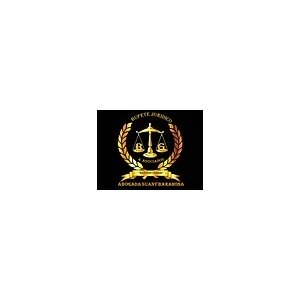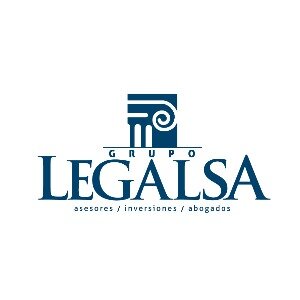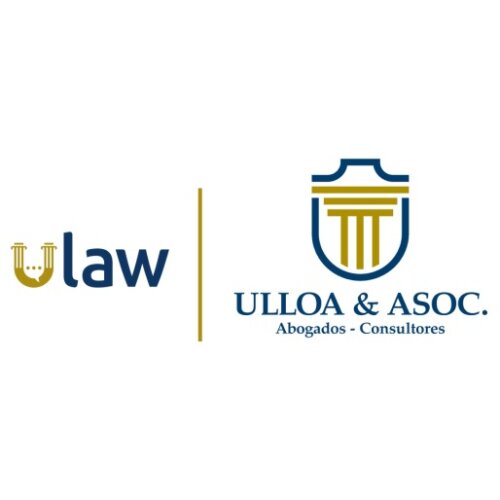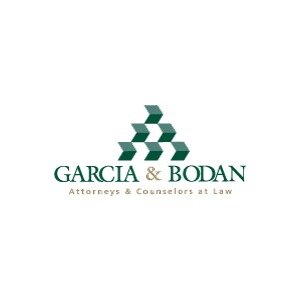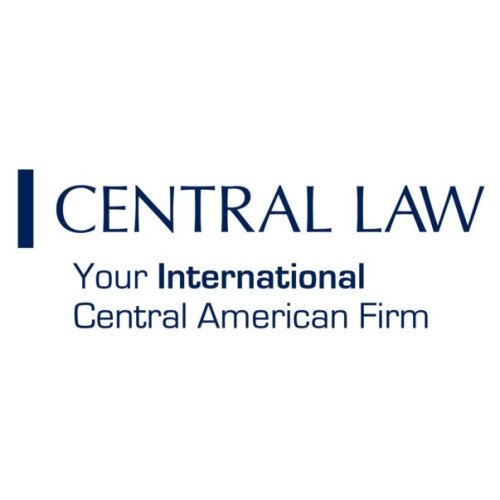Best Water Law Lawyers in San Pedro Sula
Share your needs with us, get contacted by law firms.
Free. Takes 2 min.
List of the best lawyers in San Pedro Sula, Honduras
About Water Law in San Pedro Sula, Honduras
Water Law in San Pedro Sula, Honduras, consists of the legal principles and regulatory framework governing the use, distribution, conservation, and management of water resources within the municipality and the wider country. These regulations are designed to ensure sustainable use of water, equitable access for different users, environmental protection, and public health. Water law covers various topics, including drinking water supply, irrigation rights, wastewater management, water pollution control, and the resolution of disputes among different users or communities.
Why You May Need a Lawyer
There are several situations in which residents, property owners, businesses, or farmers in San Pedro Sula may require the help of a lawyer specializing in water law. These circumstances include:
- Disputes over water rights between neighbors, communities, or commercial operations
- Challenges with accessing clean drinking water or negotiating supply agreements
- Regulatory compliance issues for businesses related to water use or wastewater disposal
- Environmental concerns or complaints about water pollution from nearby facilities
- Problems related to water infrastructure, such as damages or lack of access
- Applying for permits for water usage, extraction, or discharge
- Participating in community or governmental decision-making regarding local water management
- Protection of indigenous or communal water rights
Because water is a vital and sometimes contentious resource in San Pedro Sula, legal advice can be essential to protect your rights and ensure lawful compliance.
Local Laws Overview
In Honduras, including San Pedro Sula, water law is shaped by both national legislation and municipal regulations. The most significant legal framework is the Honduran Water Law (Ley General de Aguas), which defines water as a public good subject to state control and regulation. Key aspects include:
- Public vs private water use: All natural water sources are state property, but individuals and entities may obtain usage rights under specific conditions.
- Permits and concessions: Extraction of significant volumes of water, especially for commercial or agricultural use, typically requires obtaining a government-issued permit or concession.
- Protection of water sources: Defensive measures must be taken to prevent contamination of water bodies, and those at fault can face administrative or even criminal sanctions.
- Conflicts and dispute resolution: The law provides mechanisms for resolving water disputes, often involving local authorities or special water boards.
- Community participation: Local water committees (Juntas de Agua) often manage water distribution systems in neighborhoods or rural areas. These committees operate under municipal and national laws.
- San Pedro Sula’s municipal regulations: The City of San Pedro Sula has local ordinances addressing water supply responsibilities, tariff setting, water conservation, and penalties for unauthorized usage or contamination.
Anyone managing or using water resources in San Pedro Sula should be aware of these local and national laws in order to avoid legal issues.
Frequently Asked Questions
What is water law and who does it apply to in San Pedro Sula?
Water law is the collection of rules governing the use, distribution, and protection of water resources. It applies to every person, company, and community that uses, manages, or benefits from water in San Pedro Sula.
Do I need a permit to use water from a river or well on my property?
Yes, in most cases, you need a government permit or authorization, especially for extracting water in significant quantities or for commercial activities. Exceptions apply for small-scale domestic use but always check local regulations.
How are water disputes resolved in San Pedro Sula?
Most water disputes are handled first by local water committees or municipal authorities. If not resolved, the matter may move to administrative or judicial proceedings under Honduran law.
Can I be fined for contaminating water sources?
Yes, Honduran law provides for administrative fines, sanctions, and potential criminal charges for individuals or businesses found guilty of polluting water sources.
What should I do if my water supply is contaminated?
Report the issue to your local water committee and the municipal health or environmental authorities immediately. Legal action may also be taken against parties responsible for contamination.
How are water tariffs determined in San Pedro Sula?
Water tariffs are generally set by the municipality, in coordination with water supply companies and local committees, and are influenced by operational costs, infrastructure maintenance, and community agreements.
Are there special protections for indigenous or communal water rights?
Yes, Honduran law recognizes traditional rights and community-based management, especially in indigenous areas. These rights often involve collective ownership and decision-making regarding water usage.
Can businesses discharge wastewater into public water bodies?
Only with proper authorization and strict compliance with environmental regulations. Unauthorized discharge is prohibited and subject to penalties.
Who is responsible for maintaining water infrastructure?
Responsibility can lie with the municipality, private companies, local water committees, or property owners, depending on the location and nature of the infrastructure.
How can I obtain legal advice or representation for a water law issue?
Consult a licensed attorney with expertise in environmental or water law, or seek guidance from local associations or government agencies dedicated to water management.
Additional Resources
If you need more information or support on water law issues in San Pedro Sula, consider contacting the following organizations and bodies:
- Municipal Water and Sewerage Authority of San Pedro Sula (Aguas de San Pedro)
- Honduran Ministry of Environment and Natural Resources (Secretaría de Recursos Naturales y Ambiente, SERNA)
- Local Juntas de Agua (Water Committees)
- Honduran Bar Association or Colegio de Abogados de Honduras for lawyer referrals
- Non-governmental organizations working on water access and environmental issues
These agencies can provide important guidance, forms, or direct assistance depending on your specific needs.
Next Steps
If you believe you need legal assistance for a water law issue in San Pedro Sula, begin by gathering all relevant documents and information about your situation. Write down key facts, dates, and any communications you have had with involved parties or authorities. Then, reach out to a qualified lawyer experienced in water and environmental law for an initial consultation. You may also contact your local water committee or municipality for administrative support or guidance. Acting quickly and being well-prepared can help you protect your rights and resolve issues efficiently.
Lawzana helps you find the best lawyers and law firms in San Pedro Sula through a curated and pre-screened list of qualified legal professionals. Our platform offers rankings and detailed profiles of attorneys and law firms, allowing you to compare based on practice areas, including Water Law, experience, and client feedback.
Each profile includes a description of the firm's areas of practice, client reviews, team members and partners, year of establishment, spoken languages, office locations, contact information, social media presence, and any published articles or resources. Most firms on our platform speak English and are experienced in both local and international legal matters.
Get a quote from top-rated law firms in San Pedro Sula, Honduras — quickly, securely, and without unnecessary hassle.
Disclaimer:
The information provided on this page is for general informational purposes only and does not constitute legal advice. While we strive to ensure the accuracy and relevance of the content, legal information may change over time, and interpretations of the law can vary. You should always consult with a qualified legal professional for advice specific to your situation.
We disclaim all liability for actions taken or not taken based on the content of this page. If you believe any information is incorrect or outdated, please contact us, and we will review and update it where appropriate.




